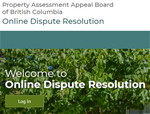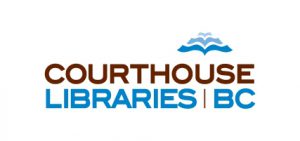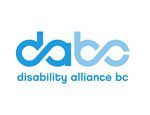2018 Bi-Monthly Update Series: March/April
To keep you informed, here are some highlights of changes and updates made to Clicklaw in March and April:
Jan-Feb | Mar-Apr | May-Jun | Jul-Aug | Sep-Oct | Nov-Dec
New extended hours for Kamloops, Nanaimo, New Westminster locations: Monday to Friday, from 8:30-12:00 pm, 12:30-4:00 pm.
![]() The Canadian Bar Association, BC Branch (CBA BC)
The Canadian Bar Association, BC Branch (CBA BC)
Many Dial-A-Law scripts have been updated. For a complete list of these resources, see their listings here (sorted by “last reviewed date”). Some of the updated scripts are:
- Adoption
- Making a Personal Injury Claim
- Possession of Marijuana
- Defending Yourself Against a Criminal Charge
The following resources have been updated:
- CPP Disability Information & Assistance series
- Advocacy Access Help Sheet series (sorted by “last reviewed date”)
- CPP-D Benefits Checklist
The help sheets and videos from the series “How I Need to Know” are now available on Clicklaw. The publications provide information for people with disabilities who are victims of crime. See the listings here (sorted in alphabetical order).
New and updated publications:
- The Child Protection Process (flowchart) – updated flowchart.
- Parents’ Rights, Kids’ Rights: A Parent’s Guide to Child Protection Law in BC
Updated booklet explaining what happens if the Director of Child Welfare has concerns about a child’s safety or plans to remove them. - Your Welfare Rights: Welfare Benefits
The second booklet in the new series Your Welfare Rights. Describes monthly welfare benefits and supplements and how to get them. - Plain language booklets helping an accused person represent themselves in a criminal matter. Revised design and content in each.
- If You Can’t Get Legal Aid for Your Criminal Trial: How to Make A Rowbotham Application – updated English version only.
- If You Can’t Get Legal Aid for Your Child Protection Case – updated English version only.
- Gladue Report Guide
New plain language guide for Gladue report writers. - A Guide to Aboriginal Harvesting Rights
Updated plain language booklet about Aboriginal harvesting rights. - Income Assistance on Reserve Insert (New Rates Update)
This new insert is now added to the booklet Income Assistance on Reserve.
New languages other than English are now available for the following publications:
- For Your Protection
- Sponsorship Breakdown
- Is That Legal? What the Law Says About Online Harassment and Abuse – co-published with West Coast LEAF
- Need Help with Your Refugee Claim?
- Working with Your Legal Aid Lawyer
The Parents Legal Centre (PLC) provides a lawyer and an advocate to help parents in select locations settle their child protection matters early on and collaboratively (everyone works together). Locations: Surrey and Vancouver.
- Enduring Power of Attorney Fact Sheet
Updated with content based on questions from public and professionals, e.g. the difference between EPA & PoA, how do I know if I have an EPA? - Power of Attorney or Enduring Power of Attorney?
Updated with an upfront focus on wording to check for if someone has an Enduring Power of Attorney. - Dying Without a Will
New fact sheet explaining who has the legal authority to settle an estate and gives examples of how an estate must be distributed if there is no will.
One of our new contributor organizations have made their resources available on Clicklaw:
- Rights cards, fact sheets, and a toolkit on issues affecting society’s most marginalized, for example:
- Position papers and backgrounders, for example:
 Is That Legal? (CyberMisogyny Legal Guide)
Is That Legal? (CyberMisogyny Legal Guide)
by West Coast LEAF
Understanding Canadian law on issues of online harassment, exploitation, & abuse. Now available in Arabic, Chinese (simplified & traditional), Punjabi, and Spanish. Co-published with Legal Services Society.
![]() Strata Property Law—Phase Two
Strata Property Law—Phase Two
by British Columbia Law Institute (BCLI)
This project is intended to make recommendations to reform the Strata Property Act, in seven identified areas, to help in the development of the next generation of strata-property law in British Columbia.
Their work on legal issues affecting the environment in BC have been recently added to Clicklaw. See the full listings here and some of their most recent reports below.
- A National Strategy to Combat Marine Plastic Pollution: A Blueprint for Federal Action (April 2018)
- Legal Review of Flood Management and Fish Habitat in British Columbia
- Seven Reforms to Address Marine Plastic Pollution
- Lower Coquitlam River Watershed Plan: Tools for Healthy Watersheds and Healthy Humans
 Landlord Registry™
Landlord Registry™
by LandlordBC
A program for landlords & building/property managers in BC. For $39 plus tax, enrollees receive access to the e-learning tool I Rent It Right™ and a 3 year access to the online tool kit. This program provides them with fundamental education & best practises in regard to the Residential Tenancy Act.
 Property Assessment Appeal Board – Online Dispute Resolution
Property Assessment Appeal Board – Online Dispute Resolution
by the Property Assessment Appeal Board of BC
This new service is available for you to appeal the property assessment of your residential properties. It allows you to have the option to resolve your appeal completely online.
 An Evaluation of the Cost of Family Law Disputes: Measuring the Cost Implication of Various Dispute Resolution Methods
An Evaluation of the Cost of Family Law Disputes: Measuring the Cost Implication of Various Dispute Resolution Methods
by the Canadian Research Institute for Law and the Family
This study describes the results of a survey of family law lawyers and their views of the use of collaborative processes, mediation, arbitration and litigation in family law disputes.









